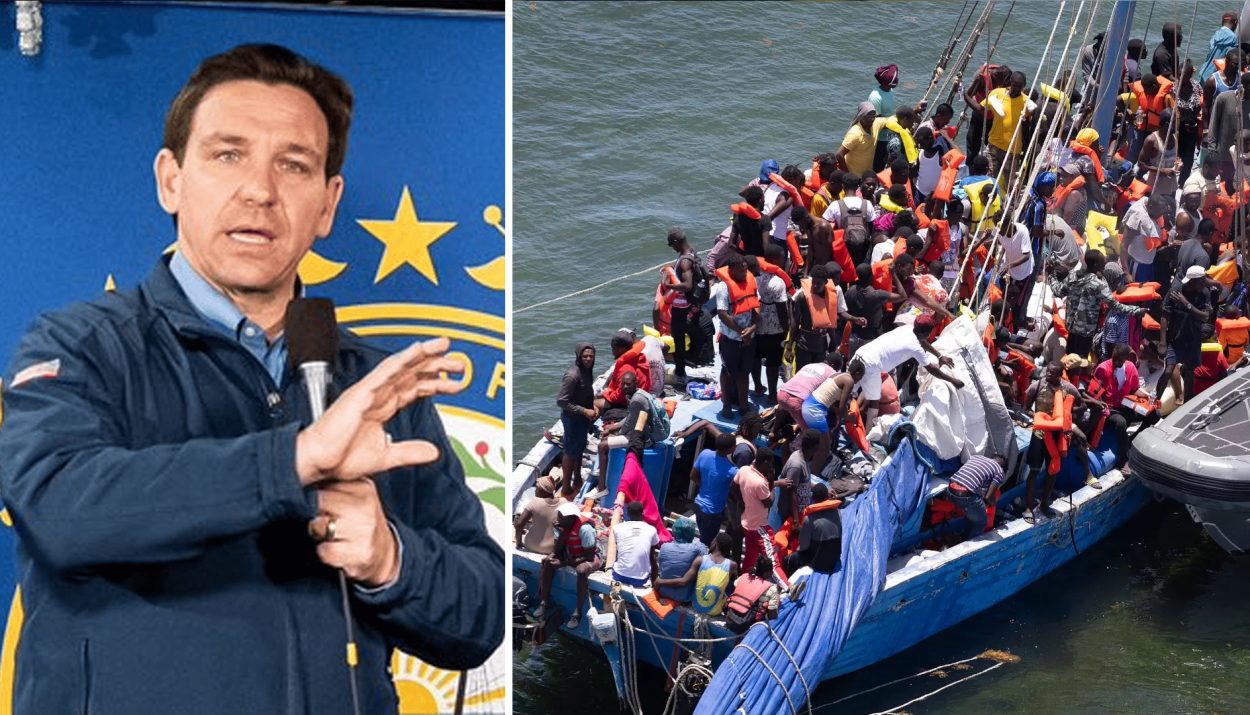Florida Governor Ron DeSantis recently announced the alarming discovery of firearms, drugs, and night vision equipment aboard a vessel carrying dozens of Haitian migrants bound for the Florida coast.
Intercepted by state law enforcement in a joint operation with federal authorities, the interdiction highlights growing concerns over a potential mass migration event as conditions in Haiti deteriorate.
DeSantis Announces Interception of Haitian Migrant Boat
Governor Ron DeSantis announced on Friday that Florida law enforcement officials recently intercepted a vessel carrying dozens of undocumented Haitian migrants off the state’s coast.
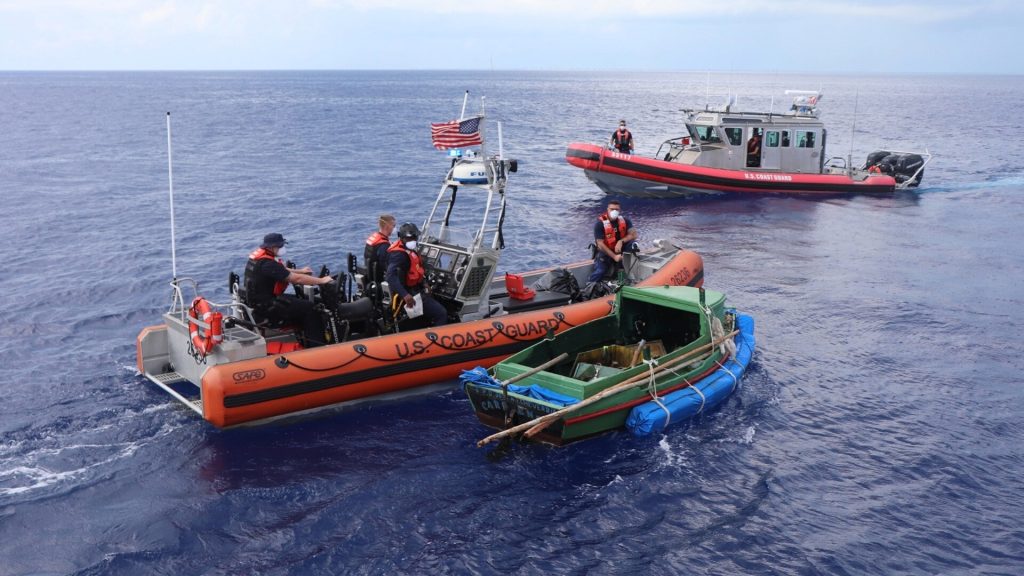
The boat was stopped near Sebastian Inlet, where 25 migrants were detained and turned over to the U.S. Coast Guard for deportation proceedings.
Dangerous Conditions and Contraband Onboard
DeSantis reported that the vessel was operating recklessly and endangered other seafarers. A search of the boat revealed concealed firearms, illicit narcotics, and night vision equipment.
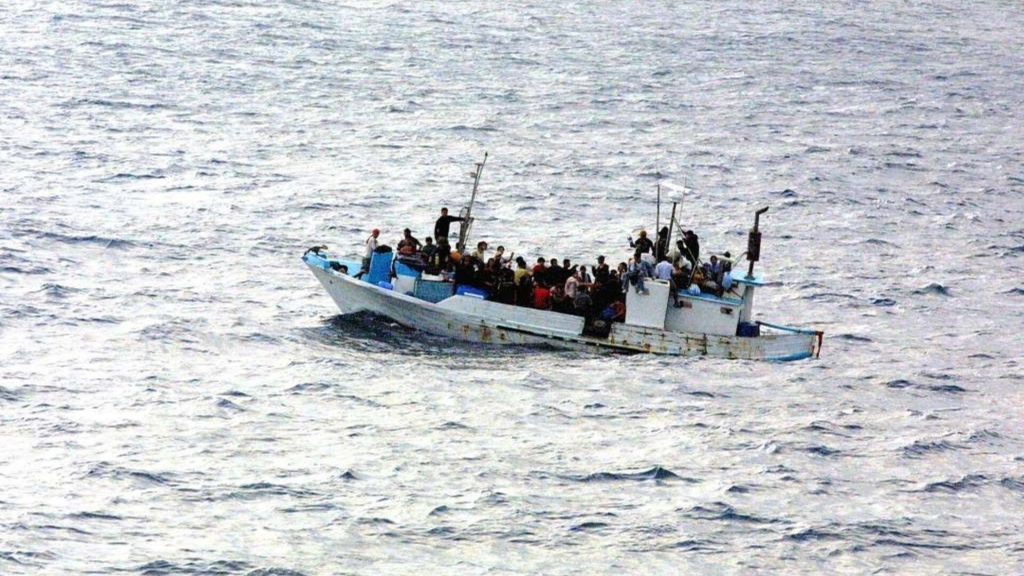
“The message is the last thing you should want to do is get on a boat and think you’re going to come through from any of these islands to get to the state of Florida,” DeSantis warned potential migrants.
Increased Maritime Patrol Enforcement Ongoing
The Governor emphasized that maritime patrols were not a new initiative but had intensified over the past several weeks.
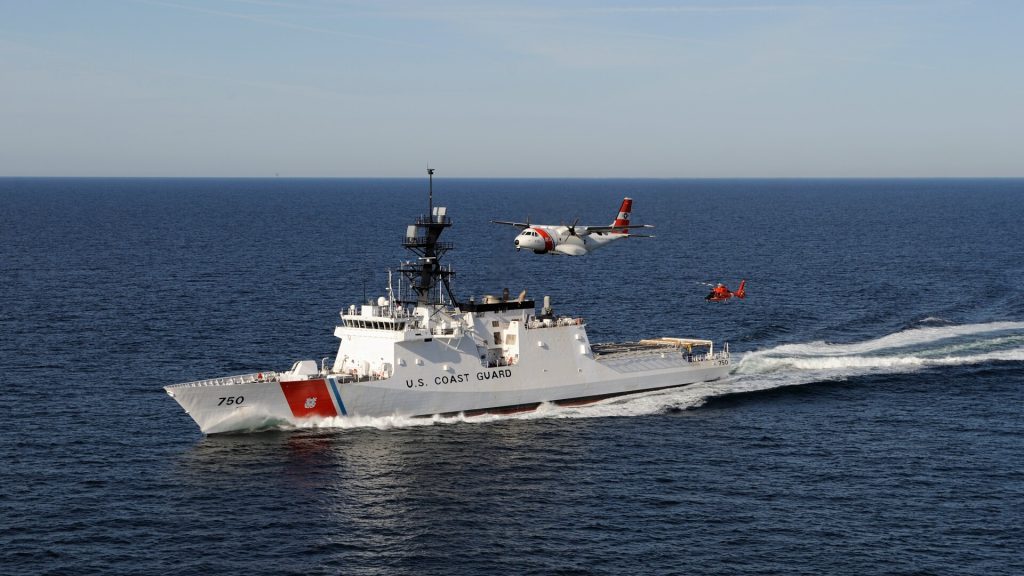
Since January 23, state and federal law enforcement have jointly interdicted 670 vessels carrying over 13,500 undocumented immigrants.
Monitoring Continuing Unrest in Haiti
DeSantis’ announcement comes amid growing unrest in Haiti that threatens regional stability. Government authority has deteriorated as gangs overrun the capital, releasing thousands of prisoners and disrupting infrastructure.

The political turmoil has raised concerns in Florida about a mass migration event. However, Pentagon officials told lawmakers that they have not yet observed a major uptick in maritime crossings from Haiti.
Guns and Ammunition were Found Onboard
According to Gov. DeSantis, the vessel intercepted by Florida law enforcement officials contained dangerous contraband in addition to dozens of undocumented Haitian migrants.

Firearms and ammunition were found onboard, posing a threat to the safety of the passengers, law enforcement, and residents of coastal Florida communities.
Other Items and Gear Found Onboard
Sophisticated equipment like night vision gear was found onboard, demonstrating the advanced technological capabilities and substantial resources available to the criminal organization behind this smuggling event.
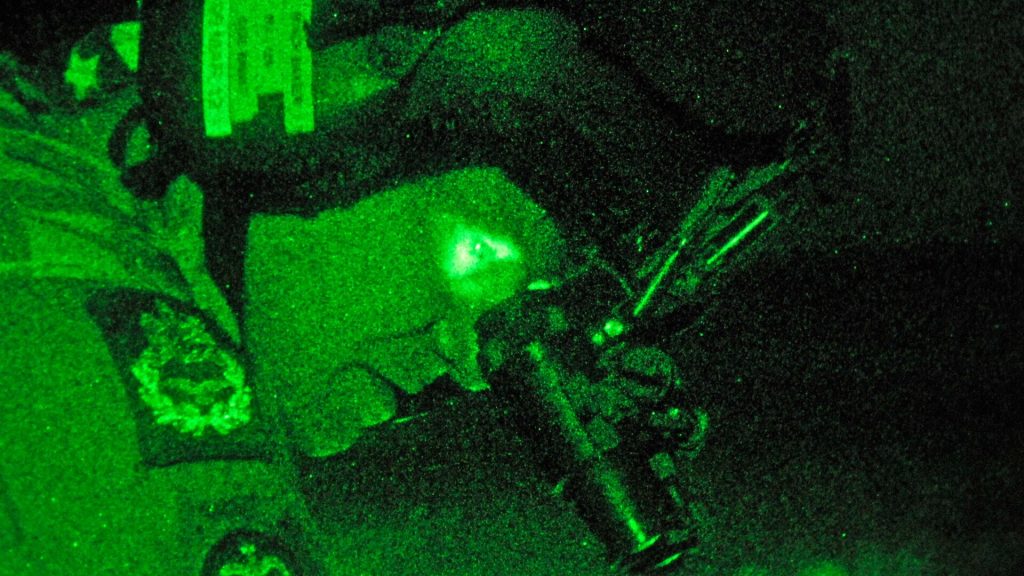
The inclusion of such gear designed specifically for covert nighttime operations indicates the smugglers’ intent to land the migrants secretly under cover of darkness to evade detection by law enforcement.
Migrants Turned Over to Coast Guard for Deportation
Upon the interception in Florida, the migrants were turned over to the U.S. Coast Guard for processing and deportation following standard procedure.
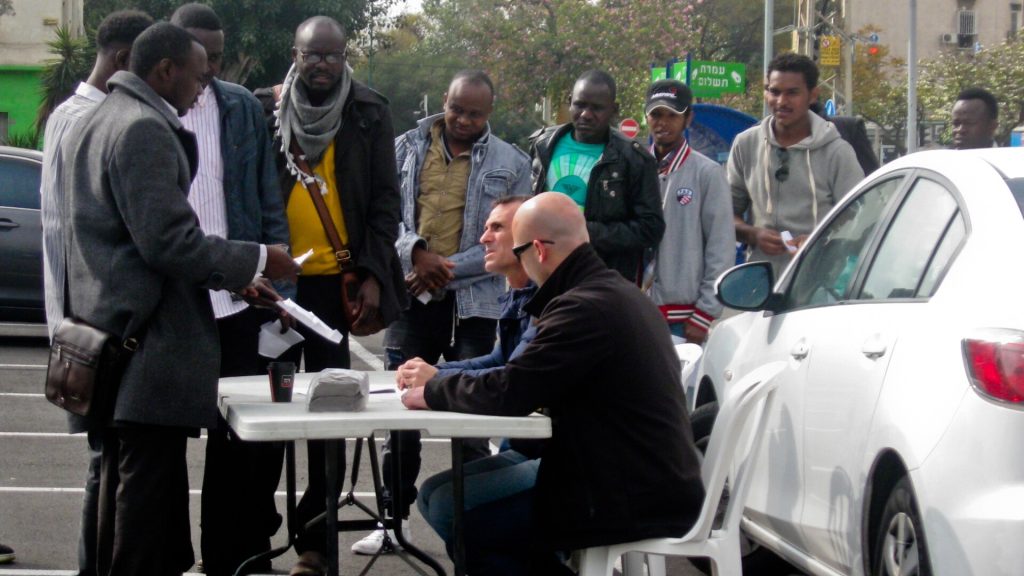
Governor DeSantis stated that “the last thing you should want to do is get on a boat and think you’re going to come through from any of these islands to get to the state of Florida…The most likely scenario is you’ll be stopped, and you will be returned to your country of origin.”
DeSantis Signs Laws to Deter Illegal Immigration
Governor Ron DeSantis signed three pieces of legislation on Friday aimed at deterring illegal immigration into Florida.
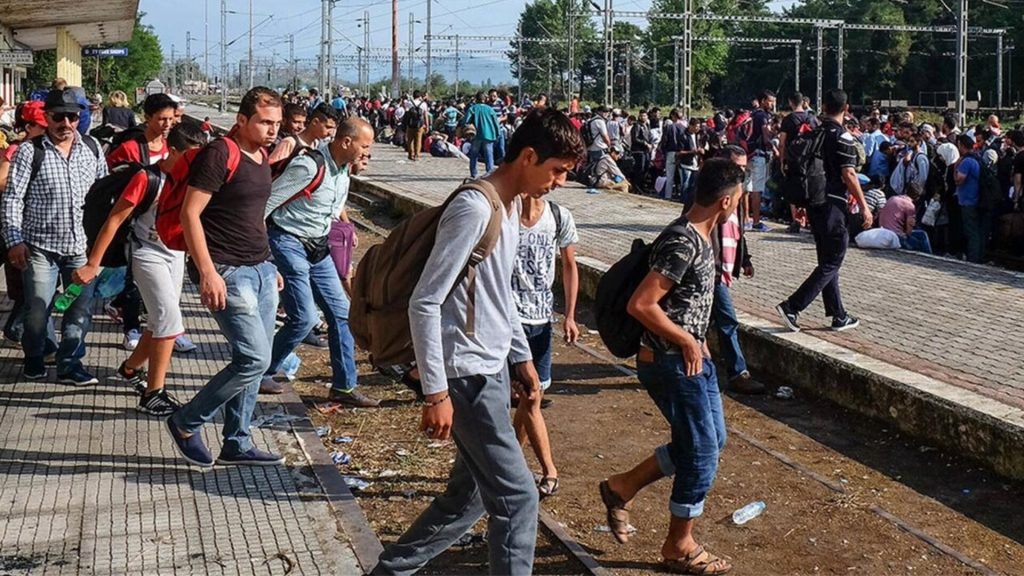
The bills provide additional penalties for human smuggling and trespassing, ban “sanctuary city” policies that protect undocumented immigrants, and require local law enforcement to cooperate with federal immigration authorities.
Crackdown on Human Smuggling
The first bill enhances penalties for human smuggling. It reclassifies the smuggling of undocumented immigrants as a second-degree felony, punishable by up to 15 years in prison.

The legislation also allows the seizure of vehicles used for smuggling and the imposition of fines up to $500,000. According to DeSantis, the harsher penalties will disrupt criminal smuggling networks transporting immigrants into Florida.
Prohibition of Sanctuary Cities
Another bill prohibits so-called “sanctuary city” policies, which prevent local officials from cooperating with federal immigration authorities.

The legislation requires local law enforcement to comply with detainer requests from Immigration and Customs Enforcement (ICE) and share information about undocumented immigrants in their custody. Cities or counties that adopt sanctuary policies face fines of up to $5,000 per day.
Cooperation with Federal Authorities
The final bill mandates that local law enforcement assist federal immigration authorities in enforcing immigration laws.
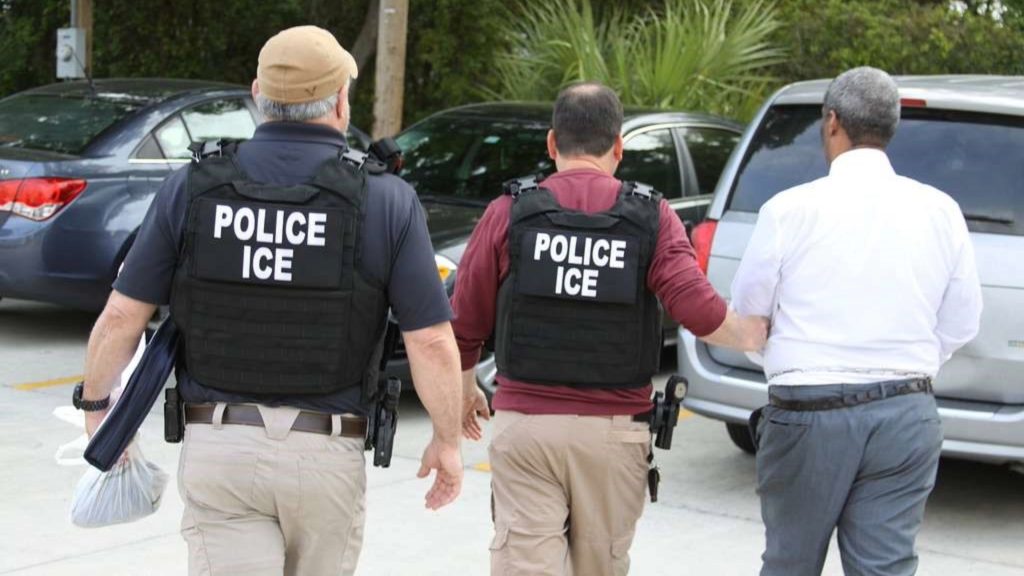
It requires local agencies to enter into agreements with ICE to allow immigration officers access to local jails and share information about undocumented immigrants in custody.
Strong Messaging to Deter Illegal Immigration
DeSantis issued a strong warning to deter illegal immigration into Florida. He stated, “The last thing you should want to do is get on a boat and think you’re going to come through from any of these islands to get to Florida.
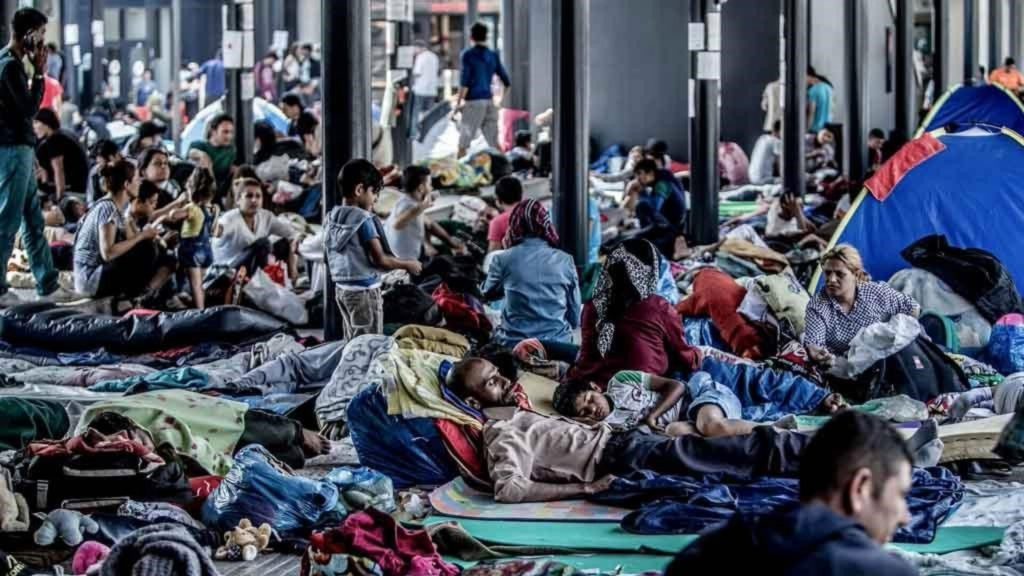
The most likely scenario is you’ll be stopped, and you will be returned to your country of origin.” DeSantis characterized illegal immigration by sea as a “hazardous journey” that is “not worth doing.”
Haiti’s Conditions Continue To Deteriorate In Recent Days
The conditions in Haiti have deteriorated significantly in recent days due to increasing violence from gangs in the capital of Port-au-Prince.
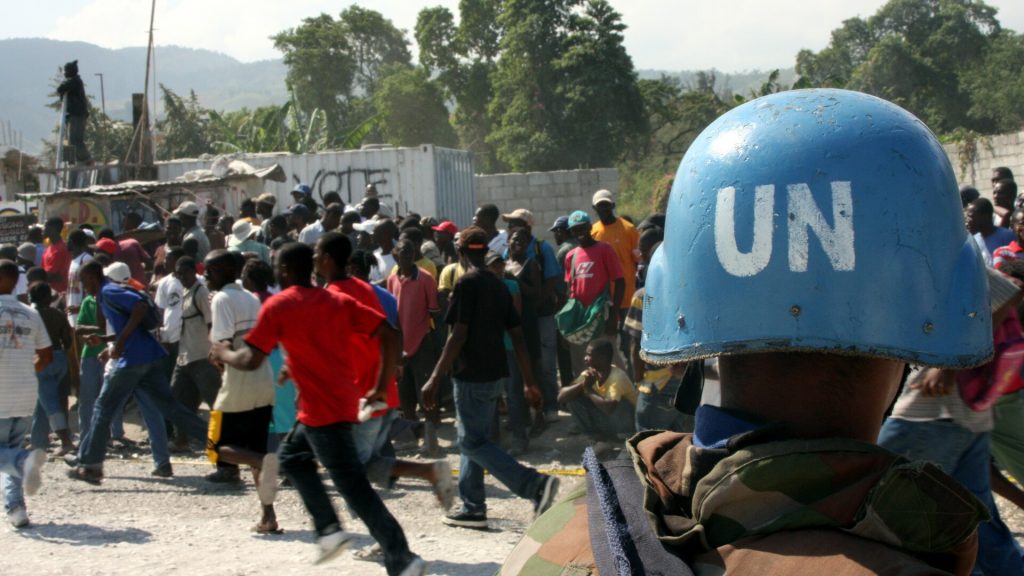
Gangs have assaulted police stations, attacked the main airport, and raided prisons, releasing thousands of inmates. And more recently, the resignation of the county’s leader, Prime Minister Ariel Henry.
Is Florida Helping The Situation?
The situation in Haiti and Florida’s robust interdiction operations have raised several questions. Will violence and instability prompt mass migration from Haiti? How is the U.S. government responding to the crisis?
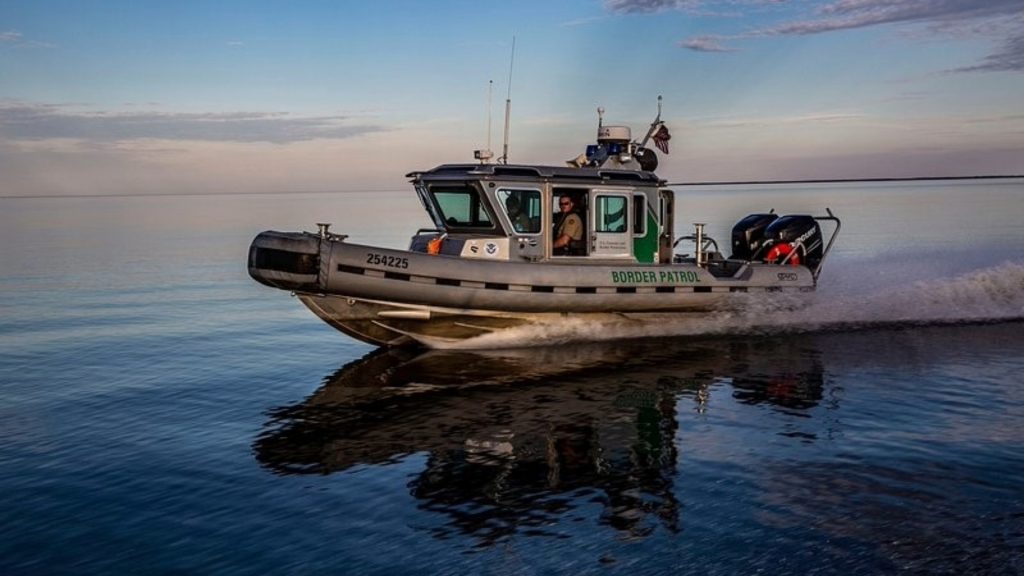
The announcement from Governor DeSantis and statements from the Department of Defense provide some insight into these pressing questions, even as the situation in Haiti remains fluid and concerning.

